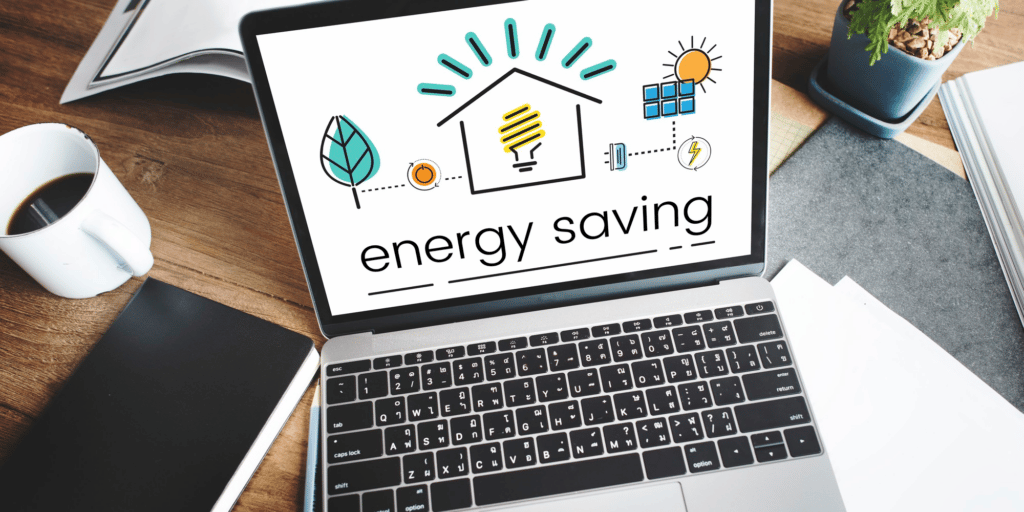The energy crisis is currently hitting homeowners in the UK where approximately 85% of us use gas boilers to heat our homes. Not only that, 40% of UK electricity is generated in gas fired power stations, leading to a hike in electricity prices as well. Nobody is sure how long the current crisis will last, or when the price of fuel may drop. It has become more important than ever to look for ways to save energy and protect our pockets.
Reduce Home Energy Use
Since lockdown, many of us are spending more time at home, inevitably increasing our domestic heating costs. There has never been a better time to make small changes such as always turning lights off when leaving the room, or having the heating set just a little lower. Consistently doing this will prevent energy waste and save money.
12 Energy Saving Tips that Will Make a Difference
1. Get an annual boiler service
We can’t stress this highly enough! A regular service will keep your boiler running in tip top, efficient condition. You’ll have peace of mind, knowing that your boiler is less likely to break down. No hot water or heating is no joke. Be sure to book a service with a Gas Safe Registered heating engineer to ensure no corner cutting for this important maintenance job.
2. Consider investing in a new boiler
Boilers usually last about 10 years. After that, they’ll maybe keep going for a while, but they’re unlikely to be running efficiently, which means you will be using more fuel. The initial outlay of a boiler may seem expensive, but over a few years, the cost savings should balance out the investment, and you will also reduce your carbon footprint.
3. Check your heating system insulation
Heating pipes and hot water cylinders that aren’t properly insulated will waste energy through heat loss. Good insulation is a simple, easy way to save money. Not only that, well insulated pipes will be protected from getting very cold and potentially freezing when extreme cold weather hits. Frozen pipes carry the risk of bursting which can lead to expensive water damage repairs.
4. Insulate your loft
Without good loft insulation, heat is quite simply going through the roof. You could save hundreds of pounds a year by preventing this waste of energy and getting your loft properly insulated. Properly installed loft cavity insulation should be laid to a depth of 207mm.
5. Bleed radiators
If you find cold patches – these can be caused by air pockets and commonly occur when you turn the heating on for the first time in the colder months. This is a simple job if you have a radiator key but if you don’t fancy tackling it yourself, you could ask your heating engineer to check the radiators and bleed them when carrying out repair or service work.
6. Turn radiators down in unused rooms
Keeping the radiator temperature very low in unused rooms is a great way to reduce fuel consumption. You could consider turning them off altogether, but a radiator set to low can help to prevent damp problems in some cases. Thermostatic radiator valves are the ideal solution for lesser used rooms.
7. Smart meter installation
If you don’t already have one, ask your energy provider to fit a smart meter. They can be quite an eye-opener when you actually see the figures on the display and for most, they encourage reduced energy consumption. When you see the reading shoot up for your boiling kettle, you really will start to check whether you are over-filling it!
8. Turn your heating thermostat down
The Energy Savings Trust calculates that turning the thermostat down by one degree is hardly noticeable and could save up to £145 a year!
9. Install draft excluders
It’s amazing how much heat can escape from a draughty house. Cold air can enter through small gaps in doors, windows or unused chimneys. Installing draft exclusion measures will make for a more comfortable, warm home and could lower your energy bill.
10. Invest in SMART heating controls
According to the Energy Savings Trust, SMART (Self-Monitoring Analysis & Reporting Technology) heating controls could help reduce your annual heating spend. These controls use intelligent technology to regulate heat in the most energy efficient way.
11. Don’t block radiators with furniture
Placing sofas up against a radiator will waste heat as it is prevented from circulating around the room. Much of it will simply be absorbed by the furniture.
12. Choose energy efficient appliances
A-rated appliances could save you money as they are designed to run more efficiently. Get into the habit of turning them off rather than leaving them on standby. If you’re having a new shower installed, make sure to choose a water-efficient shower head.
For advice on installation of a new, more efficient gas boiler, call WaterGuys on 020 313 4447
